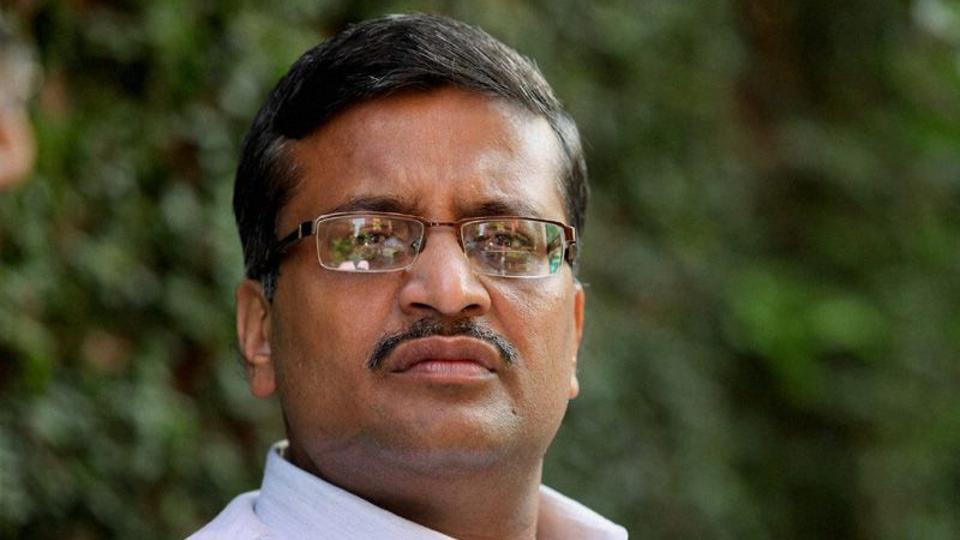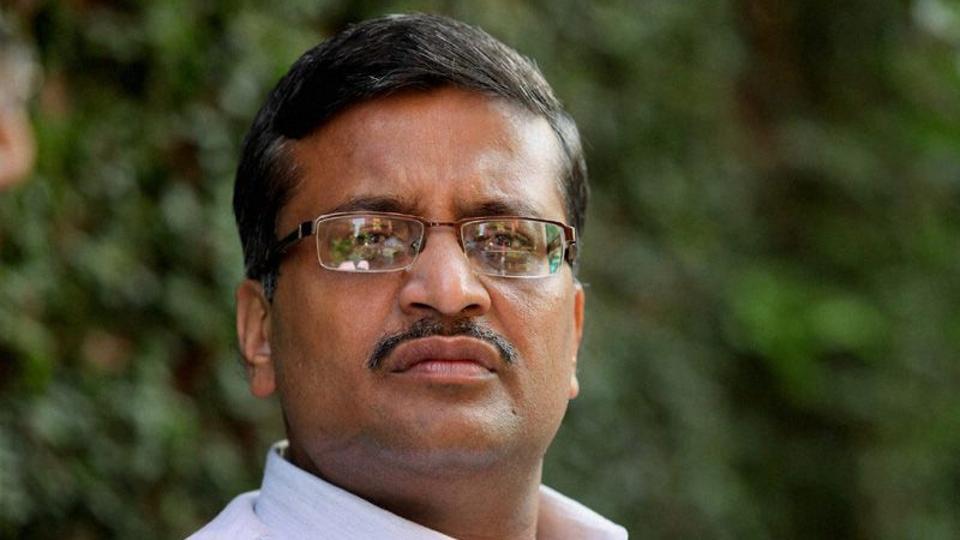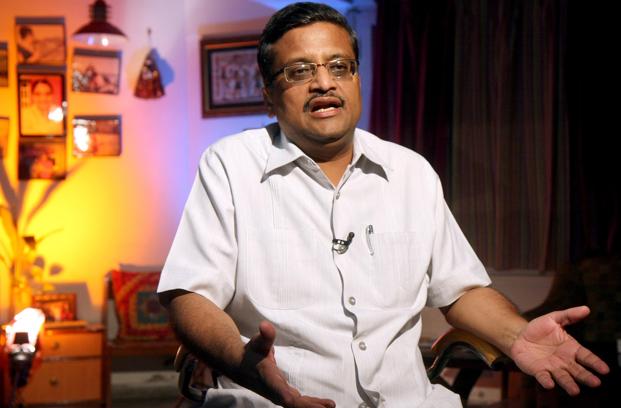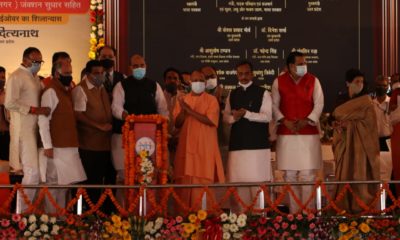Feature
IAS officer Ashok Khemka who cancelled Robert Vadra’s land deal transferred

Chandigarh: The Haryana government led by Chief Minister Manohar Lal Khattar today transferred senior Indian Administrative Service (IAS) officer Ashok Khemka. Interestingly, with this transfer it is his 50th posting during his 26th year career.
The state government has issued transfer and posting orders of 13 IAS officers, including nine additional chief secretaries (ACSs) and three principal secretaries, with immediate effect.
Basically, Khemka who came into limelight after he cancelled the mutation of the land deal between Congress president Sonia Gandhi’s son-in-law Robert Vadra and real estate giant DLF in 2012, has also been transferred.
He has been shifted to the Department of Social Justice and Empowerment as principal secretary from the Department of Science and Technology.
S K Gulati, ACS, Forests and Wildlife Department, has been posted as ACS, Fisheries Department.
Four IFS officers had complained against Gulati, objecting to his “behaviour” with them.
Senior IAS officer Navraj Sandhu has been posted as ACS, Cooperation Department, while Dheera Khandelwal goes as ACS, Environment Department.
Haryana government transfer IAS officer who cancelled Robert Vadra’s land deal:
S S Dhillon has been posted as ACS, Women and Child Development Department, while P K Mahapatra goes as ACS, Public Health Engineering Department.
Mahapatra will also look after the work of Animal Husbandry and Dairying Department. S N Roy goes as Principal Secretary, Forests and Wildlife.
K K Khandelwal, ACS, Sports and Youth Affairs will also look after the School Education Department. P K Das goes as ACS, Power Department.
Rajni Sekhri Sibal has been posted as ACS, Science and Technology, and chairperson-cum-managing director of Haryana Minerals Ltd, New Delhi.
R R Jowel has been posted as ACS, Transport Department, while Anurag Rastogi has been given additional charge of Panchayats.
V Umashankar, Commissioner, Municipal Corporation, Gurugram will assist the Sirsa District Administration with immediate effect, in addition to his present duties, till further orders.
Entertainment
Meghalaya Reserves Legalized Gambling and Sports Betting for Tourists

The State Scores Extra High on Gaming-Friendly Industry Index
Meghalaya scored 92.85 out of 100 possible points in a Gaming Industry Index and proved to be India’s most gaming-friendly state following its recent profound legislation changes over the field allowing land-based and online gaming, including games of chance, under a licensing regime.
The index by the UK India Business Council (UKIBC) uses a scale of 0 to 100 to measure the level of legalisation on gambling and betting achieved by a state based on the scores over a set of seven different games – lottery, horse racing, betting on sports, poker, rummy, casino and fantasy sports
Starting from February last year, Meghalaya became the third state in India’s northeast to legalise gambling and betting after Sikkim and Nagaland. After consultations with the UKIBC, the state proceeded with the adoption of the Meghalaya Regulation of Gaming Act, 2021 and the nullification of the Meghalaya Prevention of Gambling Act, 1970. Subsequently in December, the Meghalaya Regulation of Gaming Rules, 2021 were notified and came into force.
All for the Tourists
The move to legalise and license various forms of offline and online betting and gambling in Meghalaya is aimed at boosting tourism and creating jobs, and altogether raising taxation revenues for the northeastern state. At the same time, the opportunities to bet and gamble legally will be reserved only for tourists and visitors.
“We came out with a Gaming Act and subsequently framed the Regulation of Gaming Rules, 2021. The government will accordingly issue licenses to operate games of skill and chance, both online and offline,” said James P. K. Sangma, Meghalaya State Law and Taxation Minister speaking in the capital city of Shillong. “But the legalized gambling and gaming will only be for tourists and not residents of Meghalaya,” he continued.
To be allowed to play, tourists and people visiting the state for work or business purposes will have to prove their non-resident status by presenting appropriate documents, in a process similar to a bank KYC (Know Your Customer) procedure.
Meghalaya Reaches Out to a Vast Market
With 140 millions of people in India estimated to bet regularly on sports, and a total of 370 million desi bettors around prominent sporting events, as per data from one of the latest reports by Esse N Videri, Meghalaya is set to reach out and take a piece of a vast market.
Estimates on the financial value of India’s sports betting market, combined across all types of offline channels and online sports and cricket predictions and betting platforms, speak about amounts between $130 and $150 billion (roughly between ₹9.7 and ₹11.5 lakh crore).
Andhra Pradesh, Telangana and Delhi are shown to deliver the highest number of bettors and Meghalaya can count on substantial tourists flow from their betting circles. The sports betting communities of Karnataka, Maharashtra, Uttar Pradesh and Haryana are also not to be underestimated.
Among the sports, cricket is most popular, registering 68 percent of the total bet count analyzed by Esse N Videri. Football takes second position with 11 percent of the bets, followed by betting on FIFA at 7 percent and on eCricket at 5 percent. The last position in the Top 5 of popular sports for betting in India is taken by tennis with 3 percent of the bet count.
Local Citizens will Still have Their Teer Betting
Meghalaya residents will still be permitted to participate in teer betting over arrow-shooting results. Teer is a traditional method of gambling, somewhat similar to a lottery draw, and held under the rules of the Meghalaya Regulation of the Game of Arrow Shooting and the Sale of Teer Tickets Act, 2018.
Teer includes bettors wagering on the number of arrows that reach the target which is placed about 50 meters away from a team of 20 archers positioned in a semicircle.
The archers shoot volleys of arrows at the target for ten minutes, and players place their bets choosing a number between 0 and 99 trying to guess the last two digits of the number of arrows that successfully pierce the target.
If, for example, the number of hits is 256, anyone who has bet on 56 wins an amount eight times bigger than their wager.



























